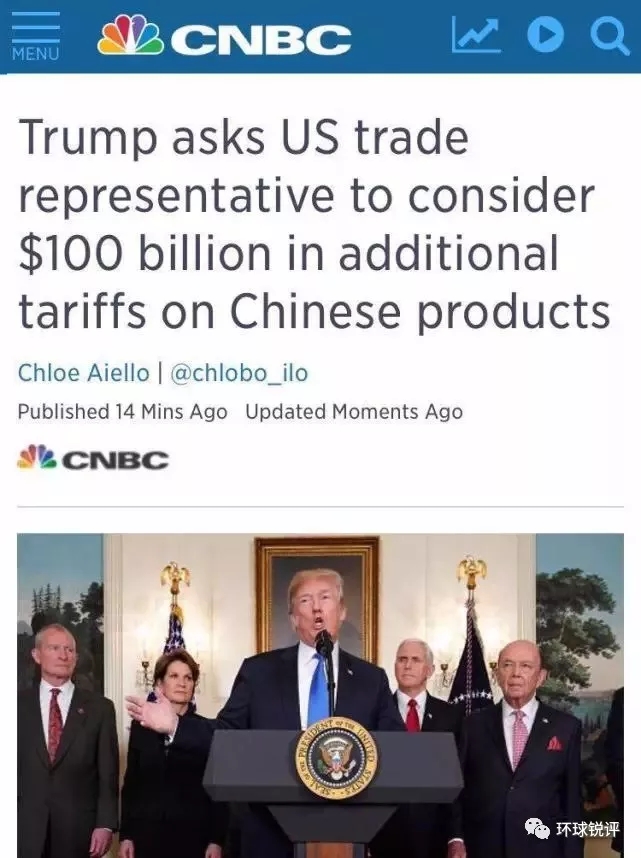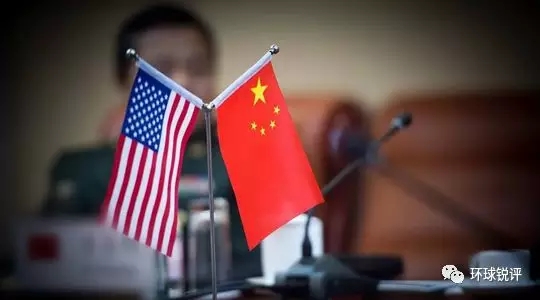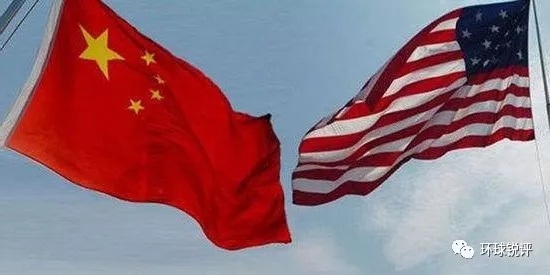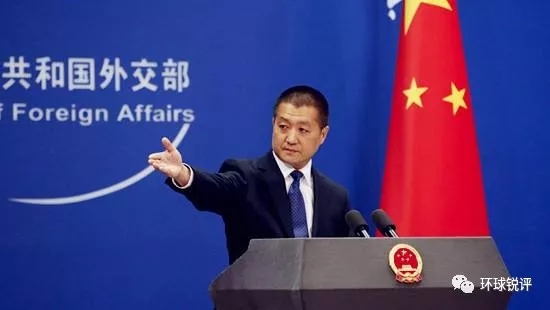On April 5, US President Trump issued a statement saying that he had instructed the US Trade Representative to consider whether it was appropriate to impose tariffs on $100 billion of China goods under Section 301. Earlier, based on the results of the "301 Survey", the Office of the US Trade Representative announced on the 3rd a list of China’s proposed goods to be subject to additional tariffs, involving the import of goods worth about $50 billion from China every year. In this regard, China immediately imposed tariffs on some products imported from the United States, and took countermeasures of the same scale, amount and intensity. This shows that the Sino-US trade friction has escalated sharply into a conflict, and the Sino-US trade war will be on the verge.

However, interestingly, after Trump’s ravings, White House officials rushed to "put out the fire", first helping to explain that Trump’s $100 billion should refer to the value of imported goods rather than the total tax collection. US Trade Representative Wright Heze also immediately issued a personal statement saying that "none of the additional tariffs will take effect immediately". In fact, in the past two days, Kudla, Trump’s new chief economic adviser, and other US government officials have been trying to reduce the fear of a trade war in the United States, saying that the United States may still reach an agreement with China. It can be seen that even Trump’s ruling team is weak, contradictory and difficult to justify.
Mutual "sanctions" are equal to mutual harm. As we all know, in the era of economic globalization, any form of trade war will fundamentally violate the basic principles of economics, the principle of trade liberalization pursued by the international community and the basic laws of the international economy.
Especially in today’s world with rapid development of informationization and networking, international trade is basically trading and developing with each other by giving full play to the comparative advantages or factor endowments of various countries. As the largest developed country in the United States, the service industry has long accounted for more than 70% of its development, while China, as a country with a short start of industrialization, has processing trade as the main form of export, and the use of cheap labor to produce low value-added products is the characteristic of China’s foreign trade. In a certain period of time, the formation of trade imbalance is mainly caused by different international division of labor, different industrial structures and different positions of global value chains, as well as different statistical methods between China and the United States (according to estimates by relevant departments, the trade deficit with China calculated by the United States is basically overestimated by about 20%), so it is unnecessary to "add fists and feet" to solve this problem.

"Sanctions" cannot change the development strategy of other countries. From the list of products restricted by the United States to China, it can be seen that the main goal of the United States is not only to solve the trade imbalance problem, but also to attack the strategic goal of "Made in China 2025" that China is vigorously promoting the development of high-tech industries with an eye to the future.
The Trump administration’s move can only be an idiotic dream and a bamboo basket. Historically, in the process of Japan’s rapid post-war economic development, Japan-US trade friction has always accompanied it. The trade war between Japan and the United States lasted from the 1960s to the early 1990s. From textiles to steel, from color TV to automobiles, from semiconductors to telecommunications, six major industries were basically fought. To the surprise of the US government, no industry in Japan was repelled in the US-Japan trade war. Except for some products in Japan, which achieved "independent restrictions", Japan not only greatly promoted the structural adjustment of some industries, but also accelerated the "gorgeous turn". For example, in the home appliance industry, major Japanese manufacturers have shifted from consumer-oriented to enterprise-oriented clients; The automobile industry has become more and more brave, and it still occupies the position of an important exporter of family cars in the world. Japan’s falling into the "lost 20 years" trough is not caused by the trade friction between Japan and the United States, but the result of Japan’s own macro-control policy mistakes.

The United States has held high the "301" stick for many times in history, but today’s determination and strength of China are destined to make this dispute different from any trade conflict provoked by the United States in the past. The biggest difference between China and other countries is that China has a vast territory and a large population. China is not simply an "export-oriented" country like Japan, but an economy where domestic demand is becoming the main driving force of economic development. China’s industrial transformation and upgrading will not be interrupted by a trade war triggered by the United States, and the development goal of Made in China 2025 will never end because of a trade war. On the contrary, due to external pressure, the government and people of China will make greater efforts to assess the situation and make concerted efforts, so as to make the big ship of China’s economy run more steadily and better in the storm.

In response to the US statement, the Ministry of Foreign Affairs and the Ministry of Commerce of China have indicated that China will accompany us to the end and will resolutely fight back at any cost. It can be said that China’s response not only reflects China’s confidence and confidence in the Sino-US trade conflict, but also warns the Trump administration with oriental culture that China is not afraid of any threats, let alone "tariff violence", if China is pushed to the opposite side.
(Global Critical Special Commentator,Director, Institute of World Economics, China Institute of International Studies Jiang yuechun)
关于作者